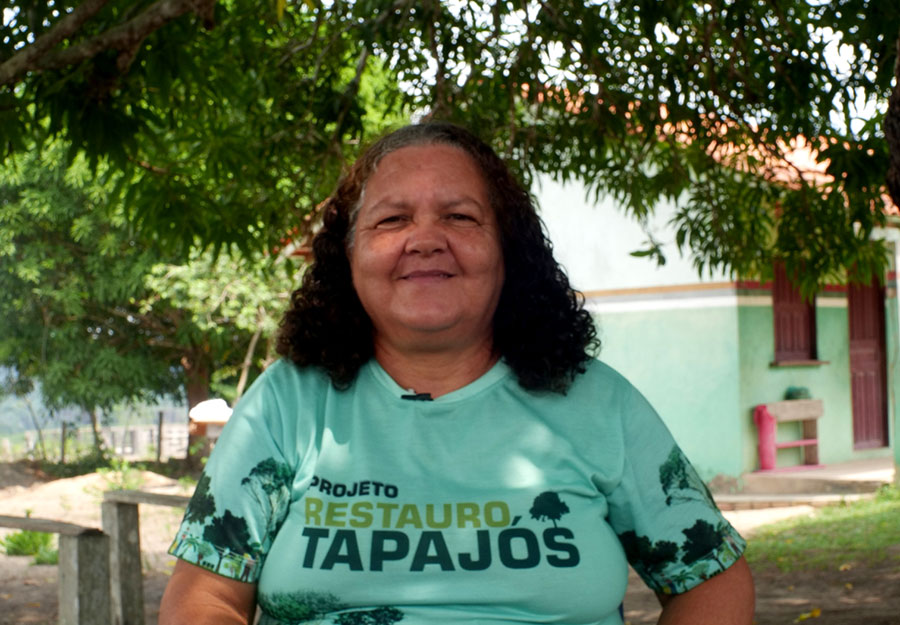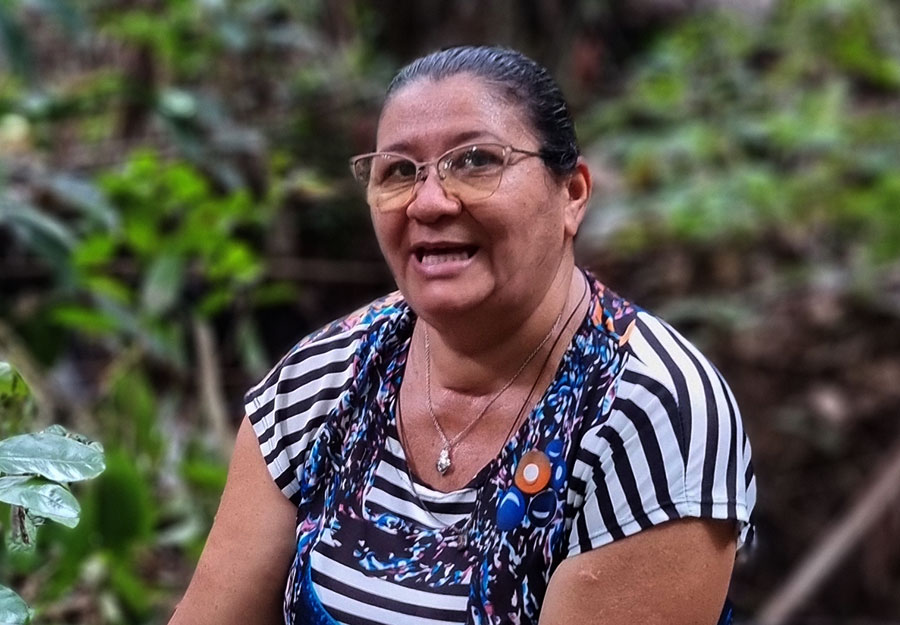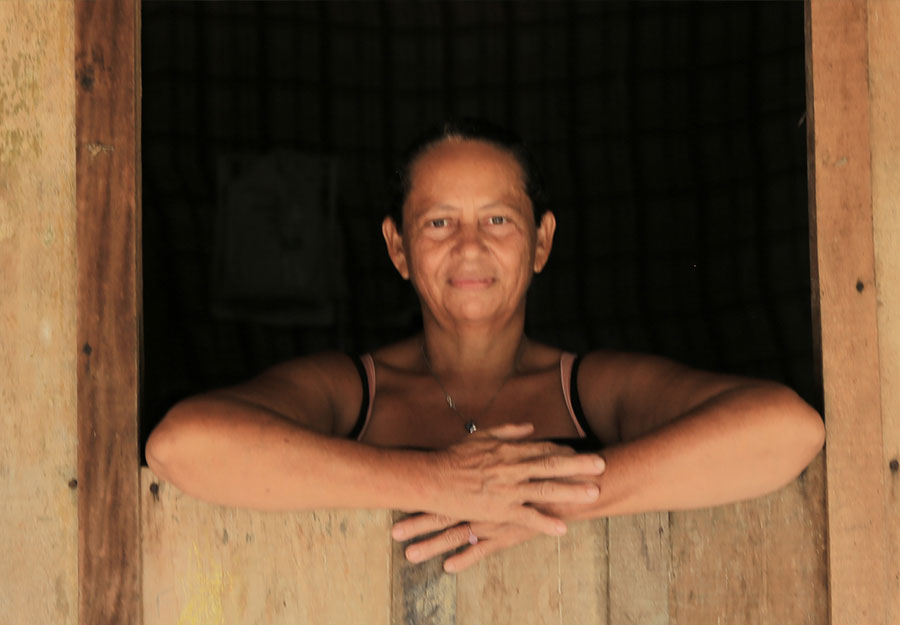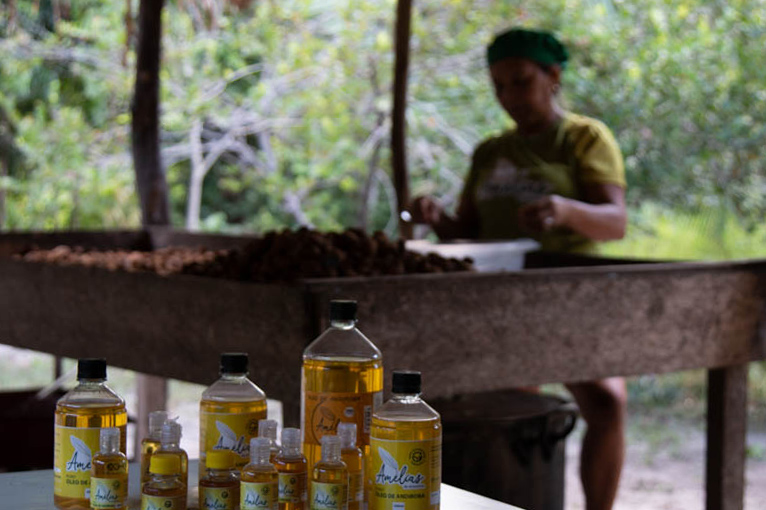In a project carried out by CI-Brazil and funded by General Motors, women take center stage in conserving the Tapajós region.
Selma Ferreira, Josefa Souza, and Rosângela Pereira have a lot in common: they are mature women, mothers, surrounded by the Amazon rainforest in a region of Pará known as Tapajós. They wake up early every day, care for animals and agroforestry systems, manage their homes and families, and are active in leading community organizations in the region. They are strong women, respected figures in their communities. Another thing they share is their dedication to protecting nature and their belief that more women need to be involved in this cause.
These three women, along with 300 others, are part of a project developed by CI-Brazil and funded by General Motors (GM), focused on implementing agroforestry systems (SAFs) and strengthening the restoration chain. “This initiative was essential for empowering women and allowing each of us to show our work ethic. After the training sessions, we had the freedom to choose how we wanted to work. That’s why I believe it was so successful,” says Selma, who is also a member of the Belterra Association of Women Rural Workers (Amabela).

SELMA

JOSEFA

ROSÂNGELA
With a strong gender component, the project was developed with and for the community, aiming to generate alternative income, reduce poverty, increase food security, and conserve the forest. SAFs were implemented in three areas near national forests. The project also restored riparian forest near a community center and established and strengthened seedling nurseries with the capacity to produce 80,000 seedlings per year. In total, 70 local women participated in courses covering topics such as entrepreneurship, marketing, social media, production best practices, financial management, agroecology, and tourism. Over 100 people received training in restoration and gender-focused courses.
“This is priceless — it’s transformative and shows that unity makes us stronger and that we can seek partnerships to live better in the countryside, with more dignity and well-being. We learned to work in the nursery with seedlings, helping the Casa Familiar Rural both in improving the facility and reforesting the surrounding area. We had technical support from the project at every step, which was crucial,” recalls Josefa, who is also president of the Association of the Rural Family House of Belterra and educational coordinator at the Community School of the Rural Family House of Belterra.

Strengthening the restoration chain generates income and improves quality of life for families in the Amazon. It is also key for Brazil to meet its international commitments to curb the most critical effects of the climate crisis. The Brazilian government has pledged to restore 12 million hectares by 2030, and the government of Pará — a central player in achieving this national goal and where the initiative is being implemented — has committed to restoring 5 million hectares in the same period.
The three partner associations in the initiative are all led by women. One of them is the Family Farmers Association of Batata Community (ASAFAB), where Rosângela serves as president. “The project taught us the importance of restoring and contributing to the preservation of forests and degraded areas. It also helped women understand the importance of caring for the land and their health through healthy food.
Now, the community is more aware of the importance of restoration and sustainable farming,” says Rosângela.
In addition to GM, the project also received financial support from the organization Planet Woman and technical support from the Amazon Environmental Research Institute (IPAM).

